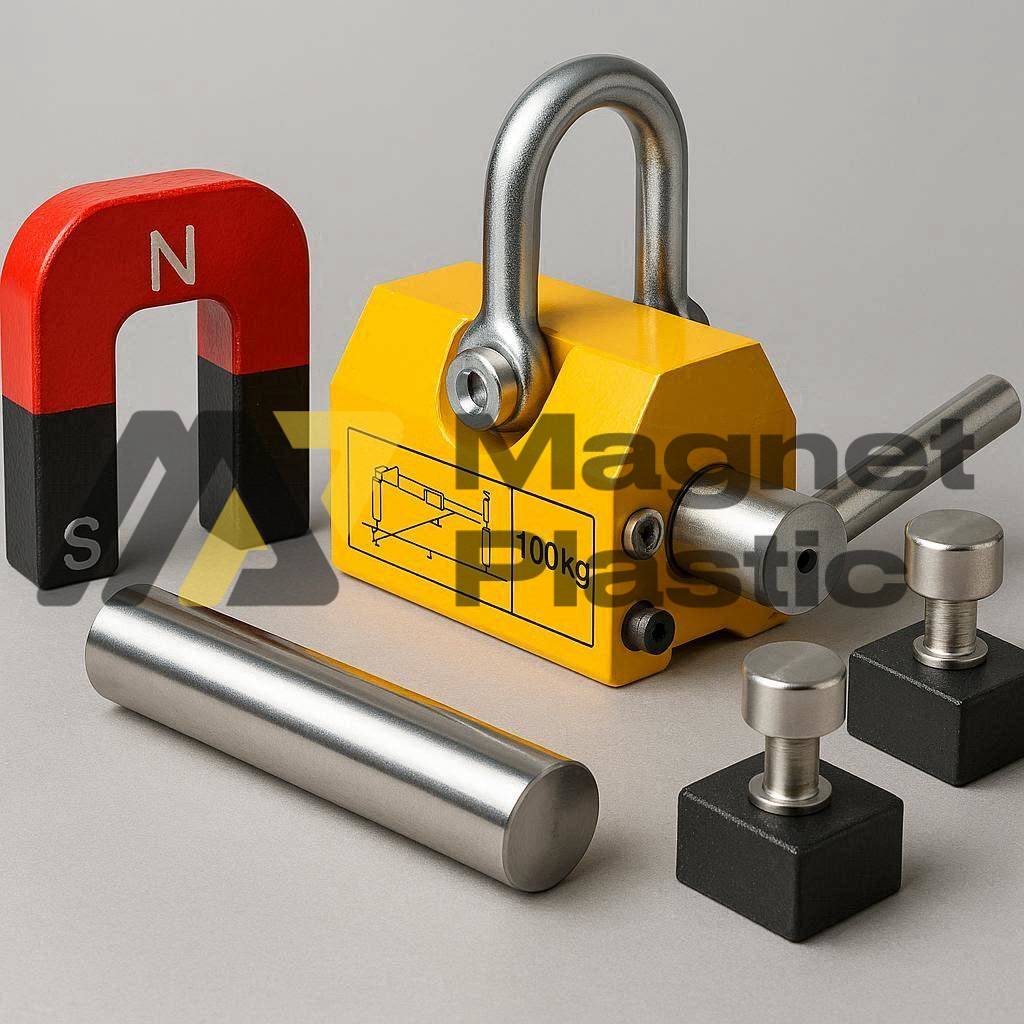Magnetic Tools: Precision, Efficiency, and Safety in Every Application
Magnetic tools have become essential components of modern industry thanks to their ability to handle, hold, and transport metal parts with ease, precision, and safety. Their use spans from mechanical workshops to automated production lines, where they help optimize processes and significantly reduce working times.
What Are Magnetic Tools?
Magnetic tools are devices designed to harness the power of magnetism to attract, secure, or move ferromagnetic materials such as iron, steel, or nickel. Their design ranges from simple handheld magnets to sophisticated industrial magnetic lifting systems. One of their key advantages is that many of them—especially those based on permanent magnets—do not require electricity to generate a magnetic field, making them safe, durable, and low-maintenance solutions.
Most Common Types of Magnetic Tools
Holding and Clamping Magnets: Used in welding, machining, or assembly processes, they hold metal pieces firmly in place without the need for clamps or screws, ensuring precision and convenience.
Magnetic Lifters: Ideal for lifting and moving steel plates, blocks, or heavy parts. Permanent magnetic models offer high load capacity and excellent safety, eliminating direct contact with the material.
Magnetic Bars and Filters: Designed to separate metallic particles in industrial processes, they help ensure product purity and protect sensitive machinery from damage.
Magnetic Pick-Up and Retrieval Tools: Handy manual tools used to collect screws, chips, or small parts in hard-to-reach areas, reducing manual handling risks.
Magnetic Bases with Articulated Arms: Serve as stable supports for measuring instruments such as dial indicators or sensors, providing accuracy and stability during inspection or calibration tasks.
Key Advantages
Magnetic tools offer a range of benefits that make them indispensable across industries:
- Operational Efficiency: They reduce handling and setup times, boosting productivity.
- Safety: They minimize direct contact with hot, sharp, or heavy materials, preventing workplace injuries.
- Durability: Permanent magnets retain their magnetic strength for years without maintenance.
- Versatility: Suitable for multiple sectors, including metallurgy, automotive, construction, food processing, pharmaceuticals, and recycling.
- Sustainability: Since they require no electrical power, they promote energy savings and eco-friendly operations.
Industrial Applications
Magnetic tools are widely used across different industrial environments. In machining and welding shops, they hold and position components; in metalworking plants, they handle sheets and profiles; in the food and pharmaceutical industries, magnetic filters ensure product purity; in recycling facilities, they separate ferrous metals; and in automotive assembly lines, they enhance ergonomics and operator efficiency.
Conclusion
Magnetic tools represent the perfect combination of technology, efficiency, and safety. Their use simplifies tasks, protects workers, and optimizes production processes while contributing to sustainable and energy-efficient operations. As a result, they have become an indispensable resource in modern industry—essential for achieving precision, reliability, and innovation in every application.
